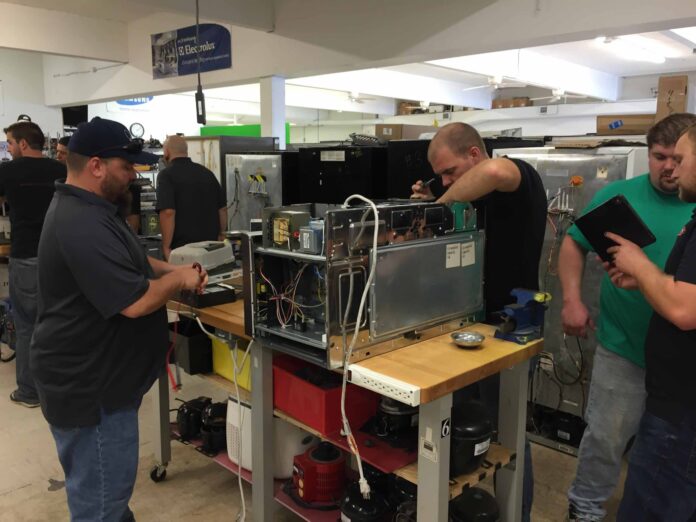In a time when our homes are inundated with a myriad of gadgets and gizmos, the role of those who can repair and maintain them becomes ever more paramount. From our trusty fridges to our indispensable washing machines, every appliance plays a critical role.
If you’ve ever contemplated entering the dynamic world of appliance repair, this article is your one-stop guide to understanding the nuances of training programs, their duration, and much more. Let’s embark on this enlightening journey.
Types of Appliance Repair Programs
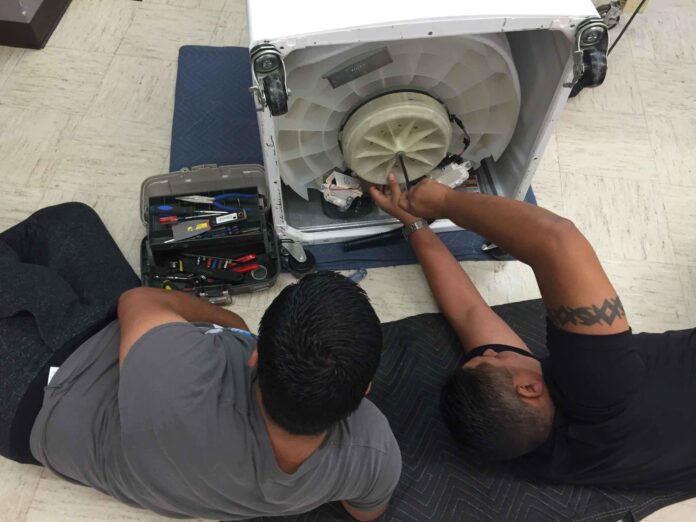
With the expansive world of household gadgets, it’s no surprise there are numerous training programs tailored to cater to this demand. Firstly, there are basic certification programs. These are designed for beginners and typically cover the essentials of most common household appliances. Next, there’s the specialized training segment. These delve deep into particular appliances, offering a comprehensive understanding, be it refrigerators, microwaves, or any other specific gadget. Lastly, there are advanced programs taught by true appliance engineers. Tailored for those looking to upscale their skillset, they cover the intricacies of high-tech or industrial appliances.
While the aforementioned broad categories provide a general overview, several schools offer hybrid courses. These combine elements from different program types, ensuring a well-rounded education. It’s essential to be aware of these varieties, so one can pick what best aligns with their career aspirations. With the right knowledge, one can ensure they don’t just repair appliances, but understand them, providing unparalleled service to clients.
Choosing the Right Appliance Repair School
Diving into the world of gadget maintenance begins by selecting the perfect institution. Begin by considering the school’s reputation. A school recognized for excellence is more likely to offer quality training. Secondly, delve into the teaching faculty’s expertise. Instructors with years of practical experience can offer invaluable insights that can’t be gleaned from textbooks alone. Lastly, consider the facilities. Modern appliances demand modern tools, and a state-of-the-art workshop can make a world of difference.
Location is another crucial factor. Proximity can save both time and commute costs. But if the perfect institution is a bit far, many offer accommodation or have tie-ups with local housing providers. Feedback from alumni is gold in this decision-making process. Their experiences can provide an unfiltered view of the school’s true quality, helping potential students make informed decisions.
Duration of Appliance Repair Training
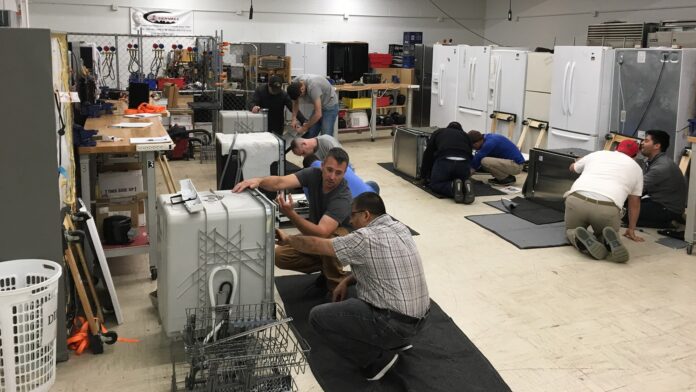
The journey to becoming an appliance repair maestro varies in length. Fundamental courses, designed to provide an overview, often span a few weeks to a couple of months. Those delving into specialized appliances may require three to six months, given the complexity of the gadgets covered. Advanced courses, on the other hand, can last up to a year, especially if they cover industrial machinery.
The time frame also depends on the mode of learning. Traditional, full-time classes often wrap up quicker than part-time or weekend batches. Online courses offer flexibility, allowing students to pace themselves as they see fit. Balancing the depth of knowledge with the available time is key to ensuring effective learning.
Curriculum and Coursework
Diving into the syllabus, most programs kick off with foundational knowledge. This includes understanding appliance anatomy, working principles, and common problems. Specialized courses then transition into the intricacies of specific gadgets, dissecting them layer by layer. Advanced curriculums often touch upon industrial machinery, their maintenance protocols, and repair methodologies.
Practical skills are as crucial as theoretical knowledge. Hence, the coursework often involves live demonstrations, where students get to witness repairs first-hand. This practical approach ensures that when they finally pick up their tools, the process feels familiar. Safety protocols, a critical aspect of the repair industry, are emphasized throughout the curriculum, ensuring students are prepared for real-world scenarios.
Hands-On Training and Workshops
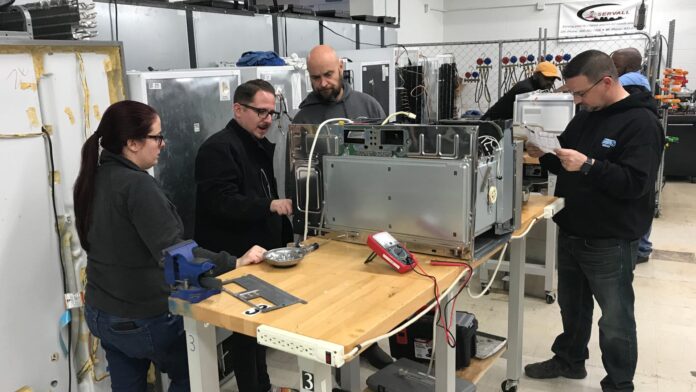
Books and lectures lay the foundation, but it’s a hands-on practice that hones the skill. Most institutions prioritize workshops where students get to dissect and understand appliances. From troubleshooting common issues to understanding gadget-specific nuances, these sessions are invaluable.
Having industry experts lead these workshops is a boon. Their years of experience translate into a treasure trove of tips, tricks, and best practices. Moreover, many schools have tie-ups with appliance manufacturers. This partnership often leads to exclusive workshops, giving students a peek into the latest tech and repair methodologies.
Certification and Licensing Requirements
Post-training, obtaining the necessary certifications becomes the next step. Most countries or states have a regulatory body that oversees the appliance repair industry. They usually mandate a specific examination to test competence. On passing, a certification or license is awarded, which acts as a testament to the technician’s skill.
Being certified not only adds credibility but often is a prerequisite for certain job roles or establishing a repair business. With evolving technology, periodic recertification might be required. This ensures technicians are up-to-date with the latest advancements. Schools often assist in this process, guiding students through the intricacies of certification and licensing.
Costs and Financial Aid Options
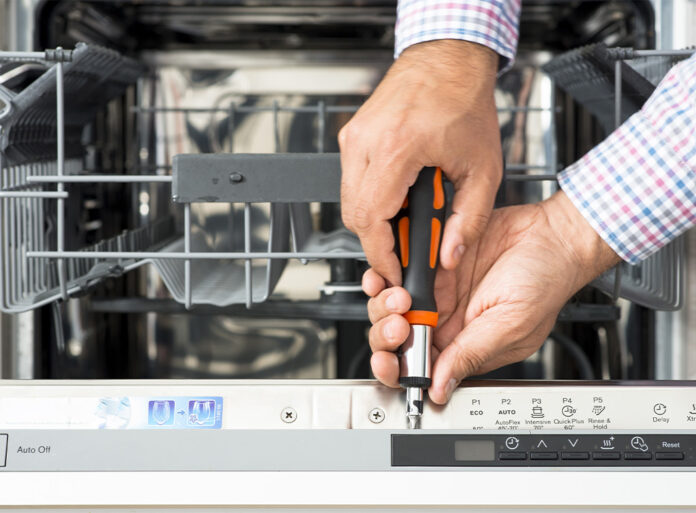
Education is an investment. However, understanding and navigating the financial aspects is crucial. While top-tier institutions might have heftier fees, the quality of education often justifies the cost. But for those on tighter budgets, many schools offer financial aid, scholarships, or payment plans.
Researching early can lead to early-bird discounts or special rates. Loans tailored for vocational training are another avenue to explore. Some institutions also have tie-ups with banks, making the loan procurement process seamless. The key lies in meticulous planning and exploring all available options.
Career Opportunities in Appliance Repair
The post-training world is rife with opportunities. Some choose to work with established repair companies, benefiting from a steady income and the chance to gather experience. Others, with an entrepreneurial spirit, might launch their own repair business. A few even specialize further, becoming experts in niche segments like luxury appliances or industrial machinery.
With the right credentials, teaching is another viable avenue. Training the next generation of technicians can be both rewarding and financially lucrative. Given the ever-growing reliance on appliances, the demand for skilled technicians shows no signs of waning, making this a promising career choice.
Final Thoughts
The world of appliance repair is dynamic, challenging, yet immensely rewarding. With the right school, training, and mindset, you’re poised to not just enter but thrive in this industry. As you hold the power to bring gadgets back to life, remember, that it’s not just about fixing appliances; it’s about restoring the daily rhythm of countless homes. The journey might be demanding, but the rewards, both financial and in terms of job satisfaction, make it a venture worth diving into.

